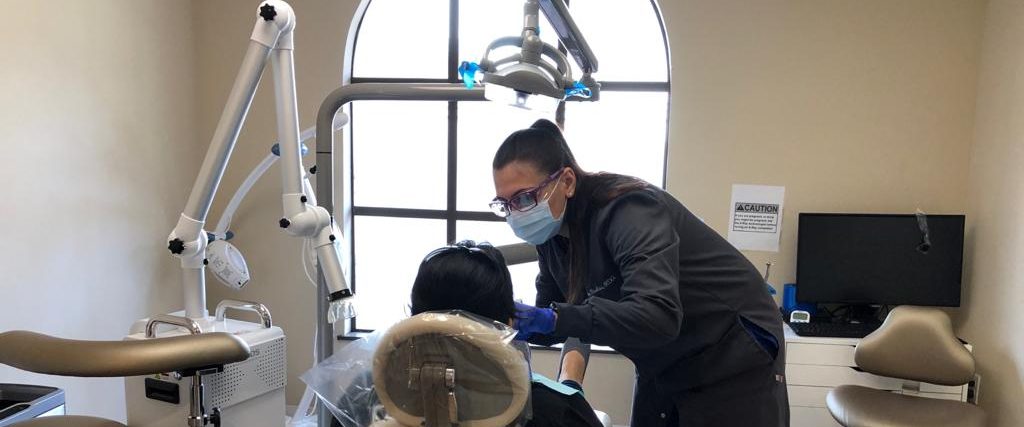Date : 07/04/2020
One of the first things many people notice about you is your smile. Your smile is your first impression, greeting, and a radiant icebreaker all in one. However, people who have gap teeth may be more hesitant to share their beautiful smiles.
Why is that? It’s because although there’s nothing wrong with gap teeth, until recently, society has conditioned people to think their gap teeth are unattractive.
It makes sense then that many people are concerned about their dental health and go to great lengths to make sure that their smile sends the right message. But with the cost, time, energy and sometimes pain of dental procedures, it can be daunting to keep up those pearly whites. Having a perfect smile doesn’t come cheap. And, it’s even more challenging to fix gap teeth.
As a result, people, now more than ever, are looking for a cost effect and an easy way to correct their dental problems. Teeth gap bands to correct gap teeth are just one of the many popular new DIY fixes.
Important Considerations for Teeth Gap Bands
There are many things to consider before trying teeth gap bands.
What are they?
How do they work?
Are they safe?
And are they really as effective as people claim?
We know it’s a lot to consider, and that is why we compiled all the information you need to know about teeth gap bands to help you make the most informed decision.
What Are Teeth Gap Bands?
Teeth gap bands are small elastic rubber bands designed to close the gaps between teeth. These bands closely resemble ligatures or the rubber bands that orthodontists use as a part of treatment.
To use a teeth gap band, typically a person with gap teeth would apply the band around two teeth and allow the pressure to pull them together gently.
How do they work?
The science behind teeth gap bands is pretty straightforward and simple.
If you have gap teeth, the bands work by applying consistent inward pressure to your teeth. Over time, the prolonged force and pressure from the bands can eventually close spaces between teeth and help your gap teeth appear to be less widely spaced.
How long does it take?
If you’re trying to fix your gap teeth with teeth gap bands, this process typically takes several weeks to a few months to complete.
The timeline of the process usually is proportional to how large the gap between your teeth is initially. The larger the space between teeth, the more time it takes for the process to complete.
There are a couple of other factors that affect the effectiveness of teeth gap bands for improving gap teeth. These include how easily one’s teeth move and how much pressure the bands exert on their teeth.
Also, the timing may vary from person to person depending on when the bands are worn. For example, just wearing the teeth gap bands at night will more than likely produce slower results in fixing gap teeth than if an individual wears them 24/7.
However, wearing the bands consistently to try to fix gap teeth is not recommended. That’s for practicality and comfort reasons. Once the gap in the teeth is closed, most people still wear the bands in their sleep to ensure that the gap does not reappear.
Do Teeth Gap Bands Work?
Teeth gap bands have proven their effectiveness over the years, but they have dangers that should be noted.
As stated previously, the bands work by applying consistent pressure to the teeth. Over time, the prolonged force closes spaces between the teeth. Depending on various factors, the process takes anywhere from several weeks to several months to complete.
However, it’s important to note that the results produced are not necessarily long-lasting. Many continue to wear the bands overnight to ensure that their gap does not reappear.
Are they safe?
Teeth are an important part of our lives. They allow us to enjoy delicious foods and share a smile with our friends, strangers, and loved ones.
However, despite the fact that on the outside our teeth seem hard, sturdy, and permanent, they are not. Teeth are alive and are made up of intricate nerves and tissues.
Contrary to popular belief, teeth are more delicate than they seem. Also, they are not just hard objects. They are complex formations with underlying structures that trained professionals should examine before treating.
Common orthodontic treatments for gap teeth
Adjusting teeth, straightening them, and aligning them is a multifaceted process that must be carried out in a delicate manner.
Common orthodontic treatments like Invisalign or braces are popular and safe methods because they work gradually over an extended period of time.
Teeth gap bands to correct gap teeth may outwardly produce a healthy smile. However, that does not mean they are completely safe. In fact, teeth bands and other home treatments can potentially cause significant harm in the long run.
Common problems with teeth gap bands
Many people praise this DIY method for its ease and its quick results in fixing gap teeth. Nevertheless, it is for that reason that many professionals in the orthopedic community do not recommend using gap bands.
Manipulating teeth at the wrong angle or adjusting them too fast can cause harmful permanent damage to the connective tissue, blood supply, and nerves within teeth.
1) Not personalized
In comparison, when a professional like a dentist or orthodontist install a retainer or braces, they first plan ahead by using tooth molds and x-rays. They get an understanding of the unique structure of an individual’s teeth and plan the safest way to align them.
Also, professional devices such as braces are made in a way that allows the body to adjust. These devices allow the nerves and blood supply to follow naturally at a good pace, unlike gap bands.
AAO report
According to the American Association of Orthodontists (AAO) in 2017, 13 percent of orthodontists saw an increase in the number of patients who attempted to straighten their teeth at home.
The AAO also reported that around 40 percent of those orthodontists had to give their patients corrective treatments because of the at-home teeth correction process.
2) Instability
Elastic teeth bands for fixing gap teeth are not stable and can be dangerous, especially since many people wear them at night. As a result, they can inch themselves into the gums and lodge there. It can destroy bones, irritate the roots of the teeth and gums, and may even cause the teeth to die.
The World Journal of Clinical Cases even disclosed that although orthopedists and dentists commonly use elastic bands in orthopedic treatment, many professionals choose not to use them. They say they’re hard to monitor and may damage the teeth.
Safety concerns
Furthermore, another safety concern regarding teeth gap bands is the uneven pressure the band exerts. Furthermore, uncontrolled and uneven pressure can leave gap teeth askew or angled. Also, the bands may even close one gap only to create a new one later.
And once teeth begin to shift, there is the possibility that the surrounding teeth will react and begin shifting as well. Some other potential dangers associated with teeth gap bands include the following.
- Bleeding
- Infection
- Nerve damage
- Jaw pain
- Permanent tooth loss
- Tooth death
- Crooked teeth
- Teeth moving in the wrong direction
- Other gaps in teeth forming
- Irreparable damage
- Loss of blood supply to teeth
It is important to consider that while teeth gap bands may provide a quick temporary fix to gap teeth, they also may put you at risk for irreversible teeth damage or treatable issues that are expensive.
The same article we linked earlier in this article shows that The American Association of Orthodontists estimates that replacing a lost tooth can cost an average of $20,000 over a person’s lifespan.
If DIY Gap Teeth Fix Is Unsafe, Why Do People Do It?
To many people, straight teeth look great, and a nice smile is something that most would like to have. A smile is something other people notice about you, and it makes a lasting impression. Therefore, it makes sense then that a lot of people go to great lengths to take care of their dental health and even fix their gap teeth if they can.
Teeth gap bands are just one of the many DIY methods rising in popularity that claim to straighten the teeth at home quickly, easily, and cheaply.
Don't Try to Fix Your Gap Teeth Yourself
For many, the results of DIY dentistry seem astounding. However, the method of using gap bands to fix gap teeth is considered unwise and unsafe by most orthopedic professionals.
Teeth gap bands work by exerting consistent inward pressure on the teeth to close any spaces. This continuous and abrupt manipulation can produce results quickly. Because of this, people turn to this method. But it is for that very reason that the general consensus regarding the bands states that they are unsafe.
You Only Get One Set of Teeth
Teeth are a complex and delicate part of the body with intricate nerves, tissues, and blood supply pathways. Manipulating the teeth quickly with gap bands can lead to painful or irreversible damage.
Some potential dangers associated with teeth bands include bleeding, infection, nerve damage, jaw pain, and permanent tooth loss.
Additionally, it can lead to tooth death, crooked teeth, teeth moving in the wrong direction, other gaps in teeth forming, and loss of blood supply to teeth. In short, in trying to fix your gap teeth, you could be creating a nightmare environment in your mouth.
And here’s a fact:
The American Association of Orthodontists estimates that 40 percent of orthodontists who encountered patients who straightened their teeth at home had to perform some corrective treatment (see previously referenced article with a link).
The AAO also estimates that replacing a lost tooth can cost an average of $20,000 dollars over a person’s lifetime. This statistic shows that while using teeth gap bands may produce the desired effect, the short-term fix and the potential harm is enough to suggest reconsidering the process.
In conclusion, using this method puts your teeth and your health at risk. And it’s not worth the potential harm. If you still desire to address the issue of fixing your gap teeth, get informed and have a discussion with a professional you trust — like the professionals here at Your Caring Dentist.
Have you ever been tempted to DIY your gap teeth? Tell us your story in the comments!




